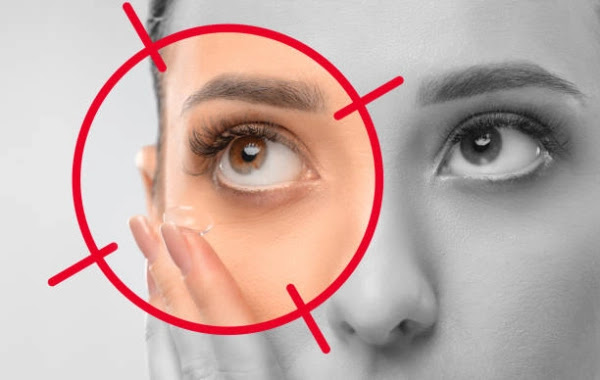Vitality of Regular Skin Assessments
Adaptive Skincare Routines
Introduction
Our skin is a dynamic organ that undergoes constant changes
influenced by various factors such as age, environment, lifestyle, and skincare habits. Regular skin assessments play a pivotal role in understanding these
changes and adapting skincare routines accordingly to ensure optimal skin
health and appearance. In this guide, we'll delve into the importance of
regular skin assessments and the value of adjusting skincare routines to meet
evolving skin needs.
The Importance of Regular Skin Assessments:
- Understanding
Skin Changes: Regular skin assessments provide an opportunity to monitor
changes in the skin's appearance, texture, and overall condition over
time. By examining the skin closely, you can identify emerging concerns
such as dryness, sensitivity, acne, hyperpigmentation, or signs of aging
and take proactive measures to address them before they become more
pronounced.
- Identifying
Skin Type and Concerns: Skin type and concerns can vary significantly from
person to person and may change over time due to factors such as hormonal
fluctuations, lifestyle choices, and environmental influences. Regular
skin assessments help determine your skin type (e.g., oily, dry,
combination, sensitive) and identify specific concerns or conditions that
may require targeted skincare interventions.
- Monitoring
Progress: Regular skin assessments allow you to track the effectiveness of
your skincare routine and treatment protocols over time. By documenting
changes in the skin's appearance and texture, you can assess whether your
current skincare regimen is delivering the desired results or if
adjustments are needed to address ongoing concerns or achieve specific
skincare goals.
- Preventing
Potential Issues: Early detection of skin concerns can help prevent more
significant problems from developing in the future. By identifying issues
such as sun damage, dehydration, inflammation, or underlying skin
conditions early on, you can take proactive steps to mitigate their impact
and prevent long-term damage or complications.
- Tailoring
Skincare Solutions: Every individual's skin is unique, and what works for
one person may not necessarily work for another. Regular skin assessments
enable skincare professionals to tailor personalized solutions based on
individual skin type, concerns, and goals. By customizing skincare
routines and treatment plans, you can optimize results and achieve
healthier, more radiant skin.
Adaptive Skincare Routines: Adjustments Based on Skin Assessments:
- Cleansing:
Adjusting your cleansing routine based on skin assessments is crucial for
maintaining a clean and balanced complexion. If your skin tends to be oily
or acne-prone, consider using a foaming or gel-based cleanser to remove
excess oil and impurities without stripping the skin's natural moisture.
If your skin is dry or sensitive, opt for a gentle, hydrating cleanser
that cleanses without causing irritation or dryness.
- Exfoliation:
Exfoliation helps remove dead skin cells, unclog pores, and promote cell
turnover, resulting in smoother, brighter skin. However, over-exfoliation
can lead to irritation, sensitivity, and inflammation. Based on skin
assessments, adjust the frequency and type of exfoliation to suit your
skin's needs. If your skin is sensitive or prone to irritation, consider
using mild exfoliants such as enzyme-based exfoliants or gentle scrubs. If
your skin is more resilient, you may tolerate more frequent exfoliation
with alpha hydroxy acids (AHAs) or beta hydroxy acids (BHAs).
- Hydration:
Hydration is essential for maintaining skin health and preventing moisture
loss, regardless of skin type or concerns. Based on skin assessments,
adjust your moisturizer to provide the appropriate level of hydration for
your skin. If your skin is dry or dehydrated, choose a rich, emollient
moisturizer that locks in moisture and prevents dryness. If your skin is
oily or acne-prone, opt for a lightweight, oil free moisturizer that
hydrates without clogging pores or exacerbating shine.
- Treatment
Products: Treatment products such as serums, essences, and spot treatments
can target specific concerns such as acne, hyperpigmentation, fine lines,
or sensitivity. Based on skin assessments, adjust your treatment products
to address current skin concerns and goals. If you're dealing with
breakouts, consider using products containing salicylic acid or benzoyl
peroxide to control acne-causing bacteria and reduce inflammation. If
you're focusing on anti-aging, incorporate products containing retinoids,
peptides, or antioxidants to stimulate collagen production and improve
skin texture and tone.
- Sun
Protection: Sun protection is non-negotiable, regardless of the season or
your skin type. Based on skin assessments, adjust your sunscreen to ensure
adequate protection against UV radiation. Choose a broad-spectrum
sunscreen with an SPF of 30 or higher and apply it generously to all
exposed areas of skin, reapplying every two hours or as needed, especially
if swimming or sweating.
- Professional
Treatments: Incorporating professional skincare treatments based on skin
assessments can enhance your skincare routine and address specific
concerns more effectively. Consult with a dermatologist or skincare
professional to determine which treatments are best suited for your skin
type, concerns, and goals. Whether it's chemical peels, microdermabrasion,
laser therapy, or microneedling, professional treatments can provide
targeted solutions and deliver visible results.
Conclusion
Regular skin assessments are essential for understanding
skin changes, identifying concerns, monitoring progress, preventing potential
issues, and tailoring skincare solutions to meet evolving skin needs. By
conducting regular assessments and adjusting your skincare routine accordingly,
you can optimize skin health and achieve a radiant, healthy complexion
year-round. Whether it's adapting your cleansing routine, adjusting exfoliation
frequency, hydrating effectively, selecting appropriate treatment products,
ensuring sun protection, or incorporating professional treatments, adaptive
skincare routines enable you to address specific concerns and achieve your
skincare goals with confidence and efficacy.
